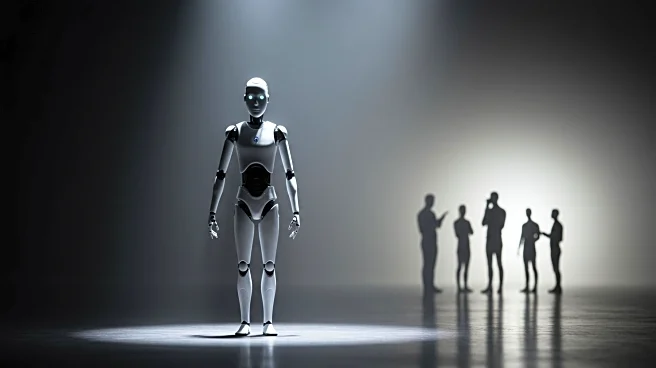What's Happening?
TikTok has announced a significant shift towards artificial intelligence (AI) moderation, resulting in the layoff of hundreds of moderators in the UK and Asia. The company aims to integrate AI into more processes to enhance user safety and operational efficiency. Despite the layoffs, TikTok has assured that displaced workers will be prioritized for rehiring if they meet certain criteria. The move has sparked criticism from unions and online safety advocates, who argue that AI may not be mature enough to replace human moderation effectively. TikTok claims that its AI systems are already removing unsafe content and are essential to comply with new regulations, such as the UK's Online Safety Act.
Why It's Important?
The transition to AI moderation by TikTok highlights the growing reliance on technology to manage online content, raising concerns about the effectiveness and safety of AI systems. This move could set a precedent for other social media platforms, impacting employment in the sector and potentially altering the landscape of online safety. The criticism from unions and safety advocates underscores the tension between technological advancement and human oversight, with implications for user privacy and protection. As TikTok navigates regulatory pressures, the effectiveness of AI moderation will be closely scrutinized by industry stakeholders and policymakers.
What's Next?
TikTok's decision to use AI for moderation may prompt other social media companies to consider similar strategies, potentially leading to widespread changes in content management practices. The company will need to address concerns about AI's readiness and effectiveness, possibly through transparency measures or collaboration with safety experts. Regulatory bodies may also increase scrutiny on AI moderation practices, influencing future legislation and compliance standards. TikTok's ongoing reorganization efforts will likely continue as it adapts to global regulatory demands and seeks to optimize its operations.










